Coqueen 100 mg Tablet 10's
MRP ₹453
(Inclusive of all Taxes)
₹68.0 Cashback (15%)
About Coqueen 100 mg Tablet
Coqueen 100 mg Tablet belongs to the class of medications called nutritional supplements used to treat various complications or long-term diseases due to Coenzyme Q10 deficiency. Coqueen 100 mg Tablet may also be used in preventing migraine headaches, preventing a second heart attack, lowering blood pressure, or slowing the progression of early Parkinson's disease. Coqueen 100 mg Tablet may also be possibly effective in improving symptoms in people with macular degeneration, congestive heart failure, nerve problems caused by diabetes, or muscular dystrophy.
Coqueen 100 mg Tablet contains Coenzyme Q10 which is also known as Ubidecarenone. It has antioxidant properties and prevents tissue damage, helps fight oxidative stress, slows down the effects of ageing, protects cognitive health, and improves metabolic functions and heart health. Coqueen 100 mg Tablet helps provide essential nutrients, thereby helps treat nutritional deficiency.
You are advised to take Coqueen 100 mg Tablet for as long as your doctor has prescribed it for you, depending on your medical conditions. In some cases, Coqueen 100 mg Tablet may cause certain common side effects like nausea, upset stomach, vomiting, loss of appetite, and diarrhoea. These side effects do not necessitate medical treatment and will fade away with time. However, if these side effects persist, you should seek medical help.
Inform your doctor if you are pregnant or a nursing mother. If you have malabsorption syndrome (difficulty absorbing nutrition from food), history of seizures (fits), liver disease, kidney disease, diabetes, heart problems, please inform your doctor before using Coqueen 100 mg Tablet . Let your doctor know if you are using any prescription, non-prescription drugs, or herbal products before starting Coqueen 100 mg Tablet .
Country of origin
Manufacturer/Marketer address
Online payment accepted

secured payment

india's most trusted pharmacy

genuine products
Composition :
Manufacturer/Marketer :
Consume Type :
Expires on or after :
Return Policy :
Provide Delivery Location
About Coqueen 100 mg Tablet
Coqueen 100 mg Tablet belongs to the class of medications called nutritional supplements used to treat various complications or long-term diseases due to Coenzyme Q10 deficiency. Coqueen 100 mg Tablet may also be used in preventing migraine headaches, preventing a second heart attack, lowering blood pressure, or slowing the progression of early Parkinson's disease. Coqueen 100 mg Tablet may also be possibly effective in improving symptoms in people with macular degeneration, congestive heart failure, nerve problems caused by diabetes, or muscular dystrophy.
Coqueen 100 mg Tablet contains Coenzyme Q10 which is also known as Ubidecarenone. It has antioxidant properties and prevents tissue damage, helps fight oxidative stress, slows down the effects of ageing, protects cognitive health, and improves metabolic functions and heart health. Coqueen 100 mg Tablet helps provide essential nutrients, thereby helps treat nutritional deficiency.
You are advised to take Coqueen 100 mg Tablet for as long as your doctor has prescribed it for you, depending on your medical conditions. In some cases, Coqueen 100 mg Tablet may cause certain common side effects like nausea, upset stomach, vomiting, loss of appetite, and diarrhoea. These side effects do not necessitate medical treatment and will fade away with time. However, if these side effects persist, you should seek medical help.
Inform your doctor if you are pregnant or a nursing mother. If you have malabsorption syndrome (difficulty absorbing nutrition from food), history of seizures (fits), liver disease, kidney disease, diabetes, heart problems, please inform your doctor before using Coqueen 100 mg Tablet . Let your doctor know if you are using any prescription, non-prescription drugs, or herbal products before starting Coqueen 100 mg Tablet .
Uses of Coqueen 100 mg Tablet
Key Benefits
Coqueen 100 mg Tablet belongs to the class of medications called nutritional supplements used to treat various complications or long-term diseases due to Coenzyme Q10 deficiency. Coqueen 100 mg Tablet may also be used in preventing migraine headaches, preventing a second heart attack, lowering blood pressure, or slowing the progression of early Parkinson's disease. Coqueen 100 mg Tablet may also be possibly effective in improving symptoms in people with macular degeneration, congestive heart failure, nerve problems caused by diabetes, or muscular dystrophy. Coqueen 100 mg Tablet has antioxidant properties and prevents tissue damage, helps fight oxidative stress, slows down the effects of ageing, protects cognitive health, and improves metabolic functions and heart health. Coqueen 100 mg Tablet helps provide essential nutrients, thereby helping treat nutritional deficiency.
Directions for Use
Storage
Side Effects of Coqueen 100 mg Tablet
- Nausea
- Upset stomach
- Vomiting
- Loss of appetite
- Diarrhoea
Drug Warnings
If you are known to be allergic to Coqueen 100 mg Tablet or any other medicines, please tell your doctor. If you are pregnant or a nursing mother it is advised to consult a doctor before using Coqueen 100 mg Tablet . If you have malabsorption syndrome (difficulty absorbing nutrition from food), a history of seizures (fits), liver disease, kidney disease, diabetes, or heart problems, please inform your doctor before using the Coqueen 100 mg Tablet . Let your doctor know if you are using a prescription, non-prescription drugs, or herbal products before starting Coqueen 100 mg Tablet .
Drug Interactions
Drug-Drug Interactions: Coqueen 100 mg Tablet may have an interaction with anticoagulant medication (anisindione, dicumarol, warfarin)
Drug- Food Interactions: No interactions found/established.
Drug-Disease Interactions: No interactions found/established.
Drug-Drug Interactions Checker List
- ANISINDIONE
- DICUMAROL
- WARFARIN
Habit Forming
Diet & Lifestyle Advise
- Choose foods that are high in nutrients, such as fruits, vegetables, and whole grains.
- Replace fatty protein sources with lean alternatives and consume small amounts of healthy fat sources for optimum health.
- Your diet should contain vegetables, fruits, whole grains, legumes, omega-3-rich foods, and lean protein sources.
- Instead of saturated and trans fats, use monounsaturated and polyunsaturated fats (fish, nuts, and vegetable oils).
- Choose/prepare foods and beverages with fewer added sugars/caloric sweeteners.
- Limit your daily salt intake to no more than 2,300 mg.
Disease/Condition Glossary
Coenzyme Q10 deficiency or Ubidecarenone deficiency: Coenzyme Q10 deficiency or Ubidecarenone deficiency is a disorder that can affect many parts of the body, especially the brain, muscles, and kidneys. As its name suggests, the disorder involves a shortage (deficiency) of a substance called Coenzyme Q10. Coenzyme Q10 deficiency can lead to seizures, poor muscle tone, intellectual disabilities, involuntary muscle contractions, and eye problems.
FAQs
Disclaimer
Alcohol
Safe if prescribed
It is not known whether it is safe to consume alcohol with Coqueen 100 mg Tablet . However, as a precautionary measure, it is advisable to avoid/limit alcohol consumption.
Pregnancy
Consult your doctor
Coqueen 100 mg Tablet is considered to be possibly safe to use during pregnancy. However, do not use this product without medical advice if you are pregnant.
Breast Feeding
Consult your doctor
It is not known whether Coqueen 100 mg Tablet passes into breast milk. Do not use this product without medical advice if you are breastfeeding a baby.
Driving
Safe if prescribed
Coqueen 100 mg Tablet does not have any reported interaction. Discuss with your doctor if you experience any difficulty.
Liver
Consult your doctor
Limited information is available regarding the usage of Coqueen 100 mg Tablet in patients suffering from liver impairment. If you have any concerns, please consult your doctor. Your doctor will prescribe only if the benefits outweigh the risks.
Kidney
Consult your doctor
Limited information is available regarding the usage of Coqueen 100 mg Tablet in patients suffering from kidney impairment. If you have any concerns, please consult your doctor. Your doctor will prescribe only if the benefits outweigh the risks.
Children
Safe if prescribed
Limited information is available regarding the usage of Coqueen 100 mg Tablet in children. Please seek medical advice from your doctor before using Coqueen 100 mg Tablet .
Author Details
We provide you with authentic, trustworthy and relevant information
Uses of Coqueen 100 mg Tablet
Key Benefits
Coqueen 100 mg Tablet belongs to the class of medications called nutritional supplements used to treat various complications or long-term diseases due to Coenzyme Q10 deficiency. Coqueen 100 mg Tablet may also be used in preventing migraine headaches, preventing a second heart attack, lowering blood pressure, or slowing the progression of early Parkinson's disease. Coqueen 100 mg Tablet may also be possibly effective in improving symptoms in people with macular degeneration, congestive heart failure, nerve problems caused by diabetes, or muscular dystrophy. Coqueen 100 mg Tablet has antioxidant properties and prevents tissue damage, helps fight oxidative stress, slows down the effects of ageing, protects cognitive health, and improves metabolic functions and heart health. Coqueen 100 mg Tablet helps provide essential nutrients, thereby helping treat nutritional deficiency.
- Inform your doctor about the nausea and discuss possible alternatives to the medication or adjustments to the dosage.
- Divide your daily food intake into smaller, more frequent meals to reduce nausea.
- Opt for bland, easily digestible foods like crackers, toast, plain rice, bananas, and applesauce.
- Avoid certain foods that can trigger nausea, such as fatty, greasy, spicy, and smelly foods.
- Drink plenty of fluids, such as water, clear broth, or electrolyte-rich beverages like coconut water or sports drinks.
- Use ginger (tea, ale, or candies) to help relieve nausea.
- Get adequate rest and also avoid strenuous activities that can worsen nausea.
- Talk to your doctor about taking anti-nausea medication if your nausea is severe.
- Record when your nausea occurs, what triggers it, and what provides relief to help you identify patterns and manage your symptoms more effectively.
- Preventing Vomiting (Before it Happens)
- Take medication exactly as prescribed by your doctor. This can help minimize side effects, including vomiting.
- Having a small meal before taking your medication can help reduce nausea and vomiting.
- Talk to your doctor about taking anti-nausea medication along with your prescribed medication.
- Managing Vomiting (If it Happens)
- Try taking ginger in the form of tea, ale, or candy to help alleviate nausea and vomiting.
- What to Do if Vomiting Persists
- Consult your doctor if vomiting continues or worsens, consult the doctor for guidance on adjusting your medication or additional treatment.
- Skin rash caused by allergies is due to irritants or allergens. Therefore, avoid contact with such irritants.
- Consult your doctor for proper medication and apply an anti-itch medication. Follow the schedule and use the medication whenever needed.
- Protect your skin from extreme heat and try to apply wet compresses.
- Soak in the cool bath, which gives a soothing impact to the affected area.
Directions for Use
Storage
Drug Warnings
If you are known to be allergic to Coqueen 100 mg Tablet or any other medicines, please tell your doctor. If you are pregnant or a nursing mother it is advised to consult a doctor before using Coqueen 100 mg Tablet . If you have malabsorption syndrome (difficulty absorbing nutrition from food), a history of seizures (fits), liver disease, kidney disease, diabetes, or heart problems, please inform your doctor before using the Coqueen 100 mg Tablet . Let your doctor know if you are using a prescription, non-prescription drugs, or herbal products before starting Coqueen 100 mg Tablet .
Therapeutic Class
Drug-Drug Interactions
Drug-Drug Interactions
Login/Sign Up
Drug-Drug Interactions Checker List
- ANISINDIONE
- DICUMAROL
- WARFARIN
Diet & Lifestyle Advise
- Choose foods that are high in nutrients, such as fruits, vegetables, and whole grains.
- Replace fatty protein sources with lean alternatives and consume small amounts of healthy fat sources for optimum health.
- Your diet should contain vegetables, fruits, whole grains, legumes, omega-3-rich foods, and lean protein sources.
- Instead of saturated and trans fats, use monounsaturated and polyunsaturated fats (fish, nuts, and vegetable oils).
- Choose/prepare foods and beverages with fewer added sugars/caloric sweeteners.
- Limit your daily salt intake to no more than 2,300 mg.
Habit Forming
Side Effects of Coqueen 100 mg Tablet
- Nausea
- Upset stomach
- Vomiting
- Loss of appetite
- Diarrhoea
Disease/Condition Glossary
Coenzyme Q10 deficiency or Ubidecarenone deficiency: Coenzyme Q10 deficiency or Ubidecarenone deficiency is a disorder that can affect many parts of the body, especially the brain, muscles, and kidneys. As its name suggests, the disorder involves a shortage (deficiency) of a substance called Coenzyme Q10. Coenzyme Q10 deficiency can lead to seizures, poor muscle tone, intellectual disabilities, involuntary muscle contractions, and eye problems.
All Substitutes & Brand Comparisons
RX
Out of StockQfem-100 Tablet 10's
Femura Pharmaceuticals Pvt Ltd
₹220
(₹19.8 per unit)
51% CHEAPERRX
Zovaco Tablet 10's
Econ Healthcare
₹311
(₹27.99 per unit)
31% CHEAPERRX
Cobarise QCT 100 Mango Chewable Tablet 10's
Saiboon Lifecare Pvt Ltd
₹399.5
(₹35.96 per unit)
11% CHEAPER

Have a query?

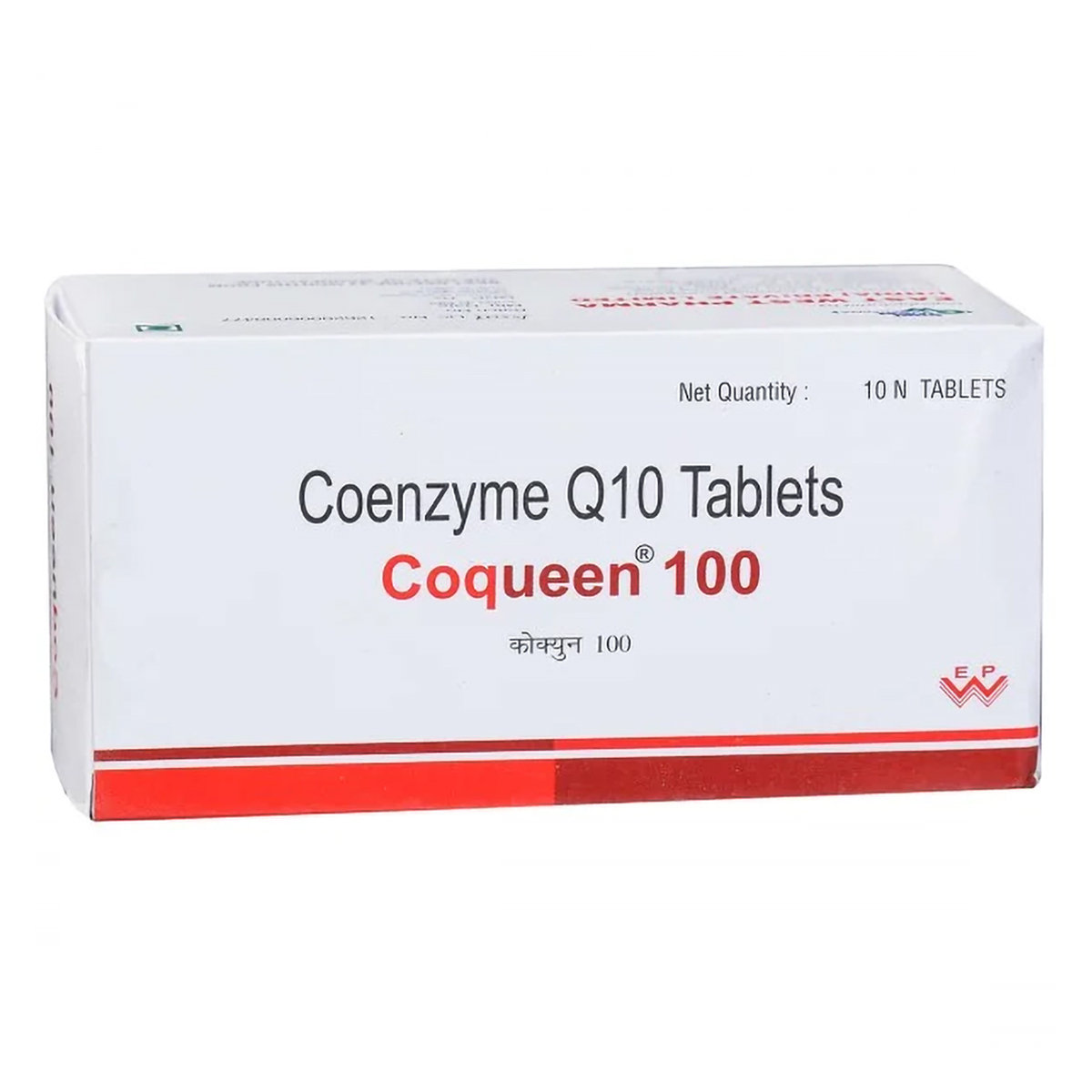
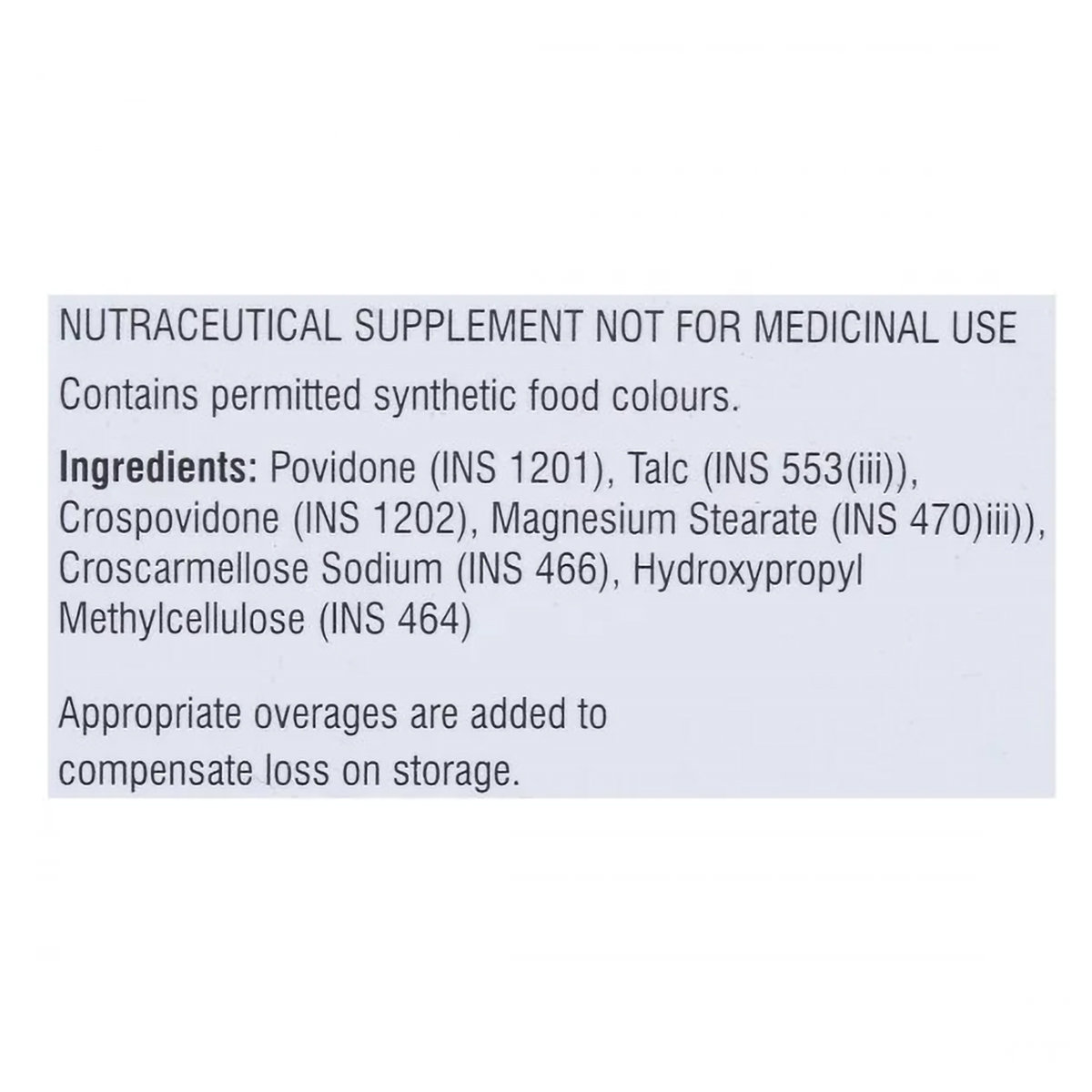
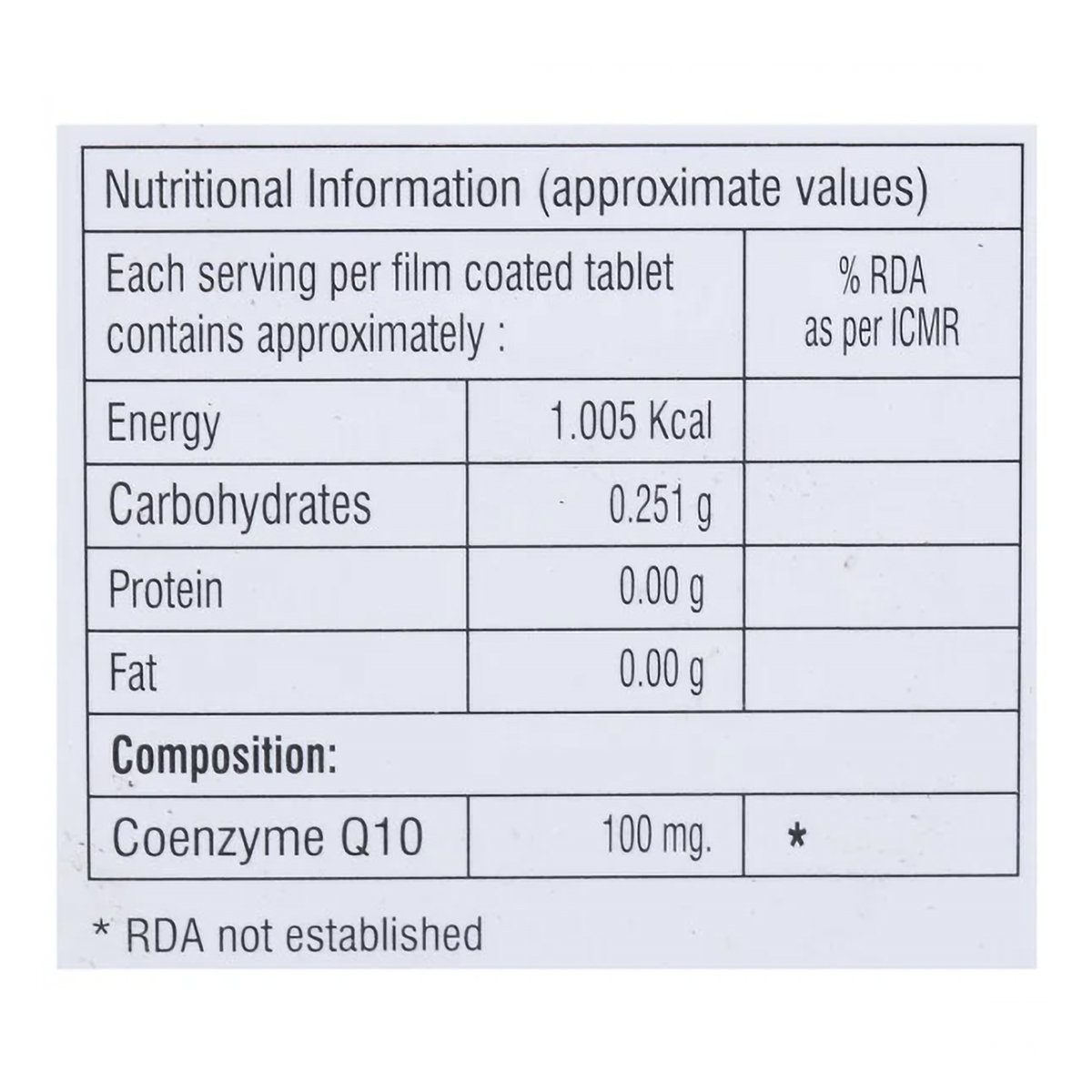
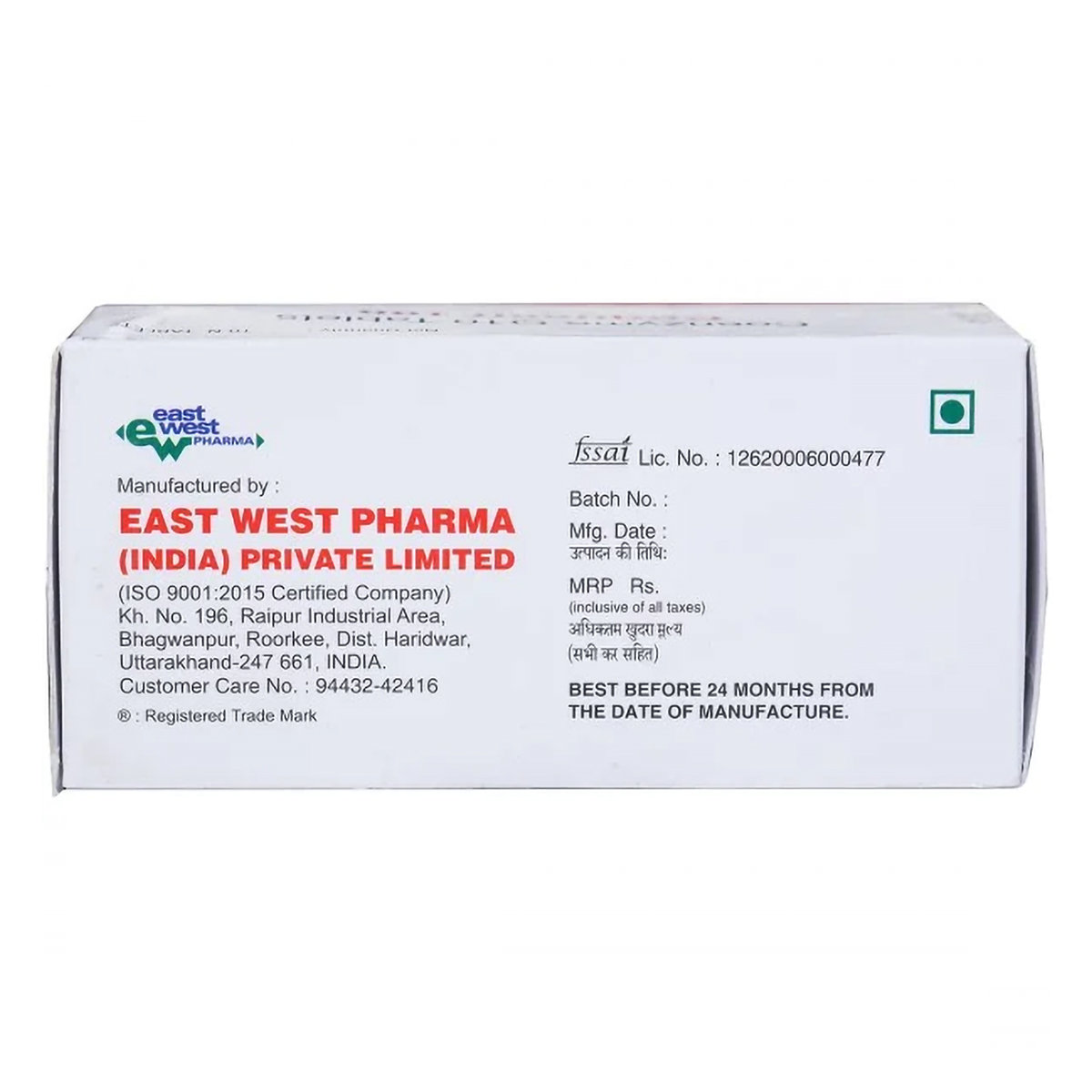


















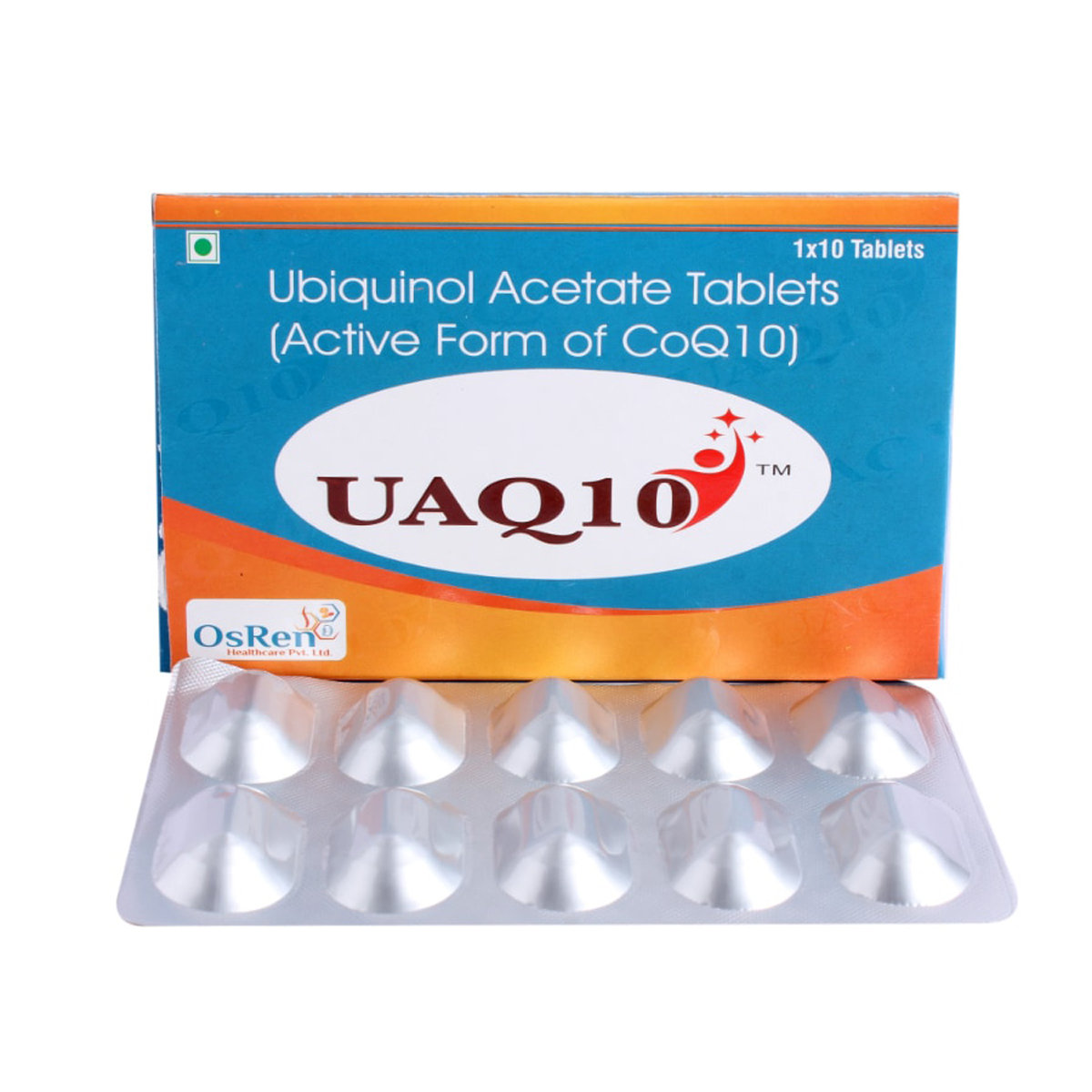


_0.jpg?tr=q-85)


